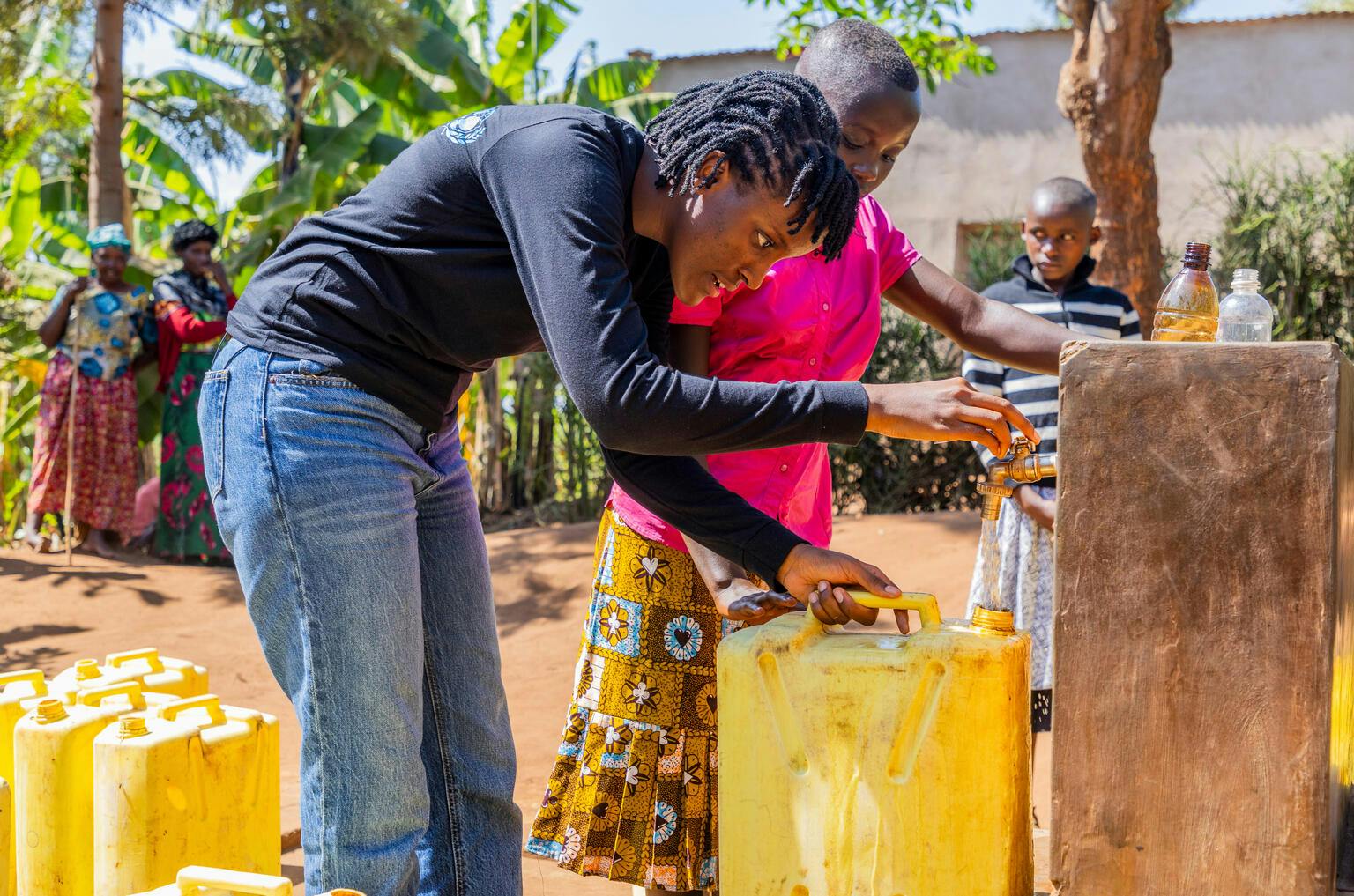
The Good News
Home
Stories
The Good News
Flipping the script on the climate change narrative; from doom and anxiety to inspiration and action.
When it comes to the issue of climate change, it feels like we are in a pressure cooker… Quite literally as the earth’s temperature rises year-on-year but also because of the anxiety it’s causing. Much of the messaging from scientists, experts, media and environmental professionals pivots on climate ‘doomism’, the belief that we’ve already lost the battle of climate change and there’s nothing more to do. And although the intention is urgency and action, often the impact is fear and paralysis.

Swapping climate ‘doomism’ with climate action
In the new book, Not the End of the World: How We Can Be the First Generation to Build a Sustainable Planet, author and researcher, Dr. Anna Ritchie makes the case for how the constant bombardment of doomsday climate change headlines is not helping… ratherit’s having the opposite effect. Instead, she advocates for pragmatic action and a whole lot of hope.
All our mahi intersects with climate action
As a global children’s charity focused on the rights and well-being of kids, climate action is at the forefront of UNICEF’s mahi. We understand the urgency and collaborate with experts, partners and community organisations from many fields to find long-term solutions to context-specific climate emergencies. One thing is certain, climate change is a major contributing factor in every one of our areas of focus; from child rights to malnutrition, gender equity to water and sanitation, and mental health to emergency management.
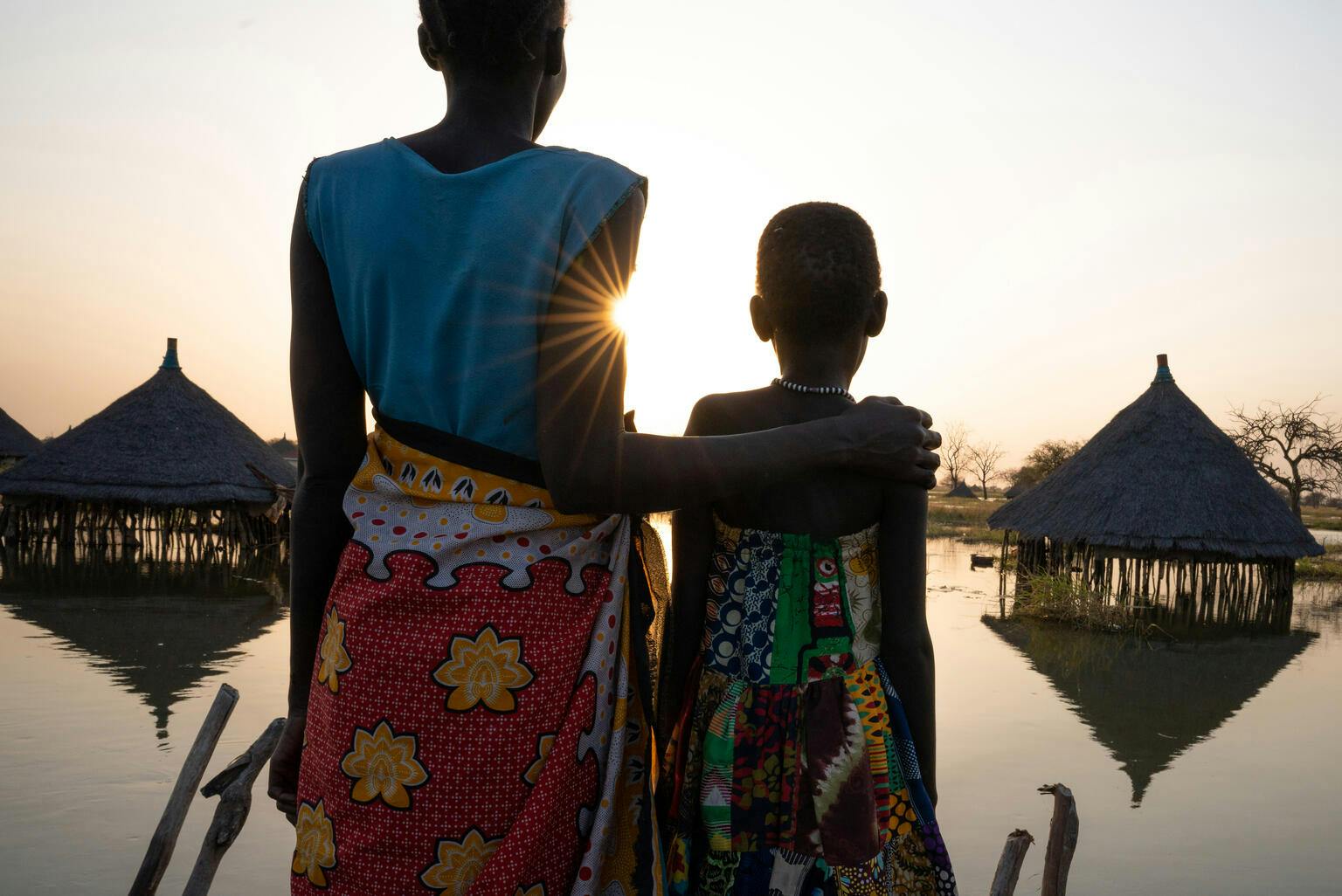


Girls and young women bare the brunt of the climate crisis
The 8th of March was International Women’s Day, and for this first instalment of our Good News series, we’re focusing on climate action initiatives aimed at young girls and women from within the UNICEF global whānau. Studies show that girls and young women are the hardest hit by climate change. According to latest estimates, by 2025, climate change could prevent over 12 million girls from completing their education every year. Girls are the first to leave school to assist their families affected by changing climate conditions, shouldering additional household responsibilities during crises. These are just a couple of projects where the impact on the lives of young girls and women, as well as the environment, are having a massive impact and are incredibly hopeful!
Going solar in Rwanda
Scarce water resources and unequal gender roles in communities in Rwanda force girls and women to embark on long and unsafe journeys to fetch water, while droughts and floods can make girls miss school during their periods due to the lack of water and safe toilets. In the Kirehe District, Eastern Province of Rwanda UNICEF supported the conversion of a diesel-run water supply system into a solar-powered system, benefitting around 11,000 adolescent girls and women.
The difference it’s made to young girls and women’s lives has been profound. The distances to fetch water at a public communal site are much shorter, leading to more time for learning and rest, with less threat of injury and abuse. The cost of operation has also been cut in half, and exposure to pollution in the community reduced.
“Adolescent girls are demanding change. We must listen, and we must act. Despite the stark challenges they face, adolescent girls and women are leading the call for change around the world, building powerful, intersectional movements,” UNICEF Deputy Regional Director for Eastern and Southern Africa Rania Dagash.
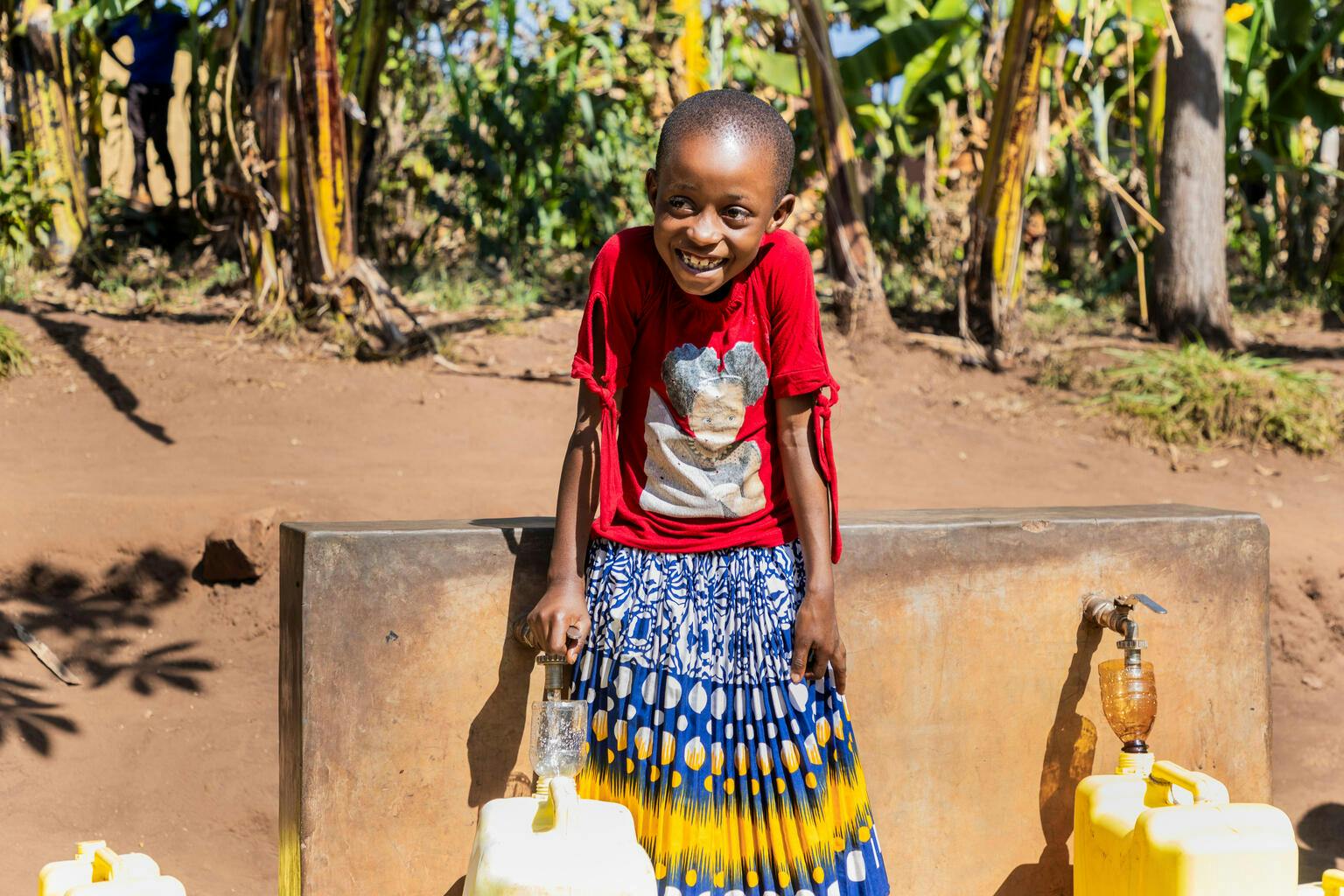
Growing their own in Bangladesh
Bangladesh is severely impacted by climate change and extreme climate events. The Global Climate Risk Index ranks Bangladesh as the seventh most affected country in the world from extreme weather events between 2000 and 2019. Depending on the region, Bangladesh experiences regular and long-lasting floods, cyclones, storm surges, droughts, sea level rise and other extreme climate events to which its coastal and riverine populations are especially vulnerable.
Cox’s Bazar is one of the regions of Bangladesh that’s most vulnerable and it lags behind in many critical indicators in comparison to national standards, ranging from poverty to child nutrition, child labor, and child marriage. The massive influx of Rohingya refugees in Cox’s Bazar in 2017 created a severe humanitarian crisis and five years into the Rohingya crisis, Bangladesh hosts over 900k Rohingya refugees in Cox’s Bazar District, over half of which are tamariki.
Together with local authorities, UNICEF has launched a program in the district to enable under-resourced families – led by mothers – to generate their own income. This helps them improve the nutrition status of their families by increasing access to nutrient-dense and diversified foods. The program includes helping families to set up their own micro-agriculture garden or backyard farming enabling women like Altaj Begum (50) to grow spinach, tomatoes or eggplants, among other crops. As part of the program, the families receive the necessary seeds and fertilizers as well as the training they need to grow vegetables successfully.
The vegetables are used to provide for their own needs but the women have the opportunity to sell surplus produce at local markets, thereby generating additional income for their families. The income is used, for example, to expand the garden cultivation or to carry out repairs to the house and yard.
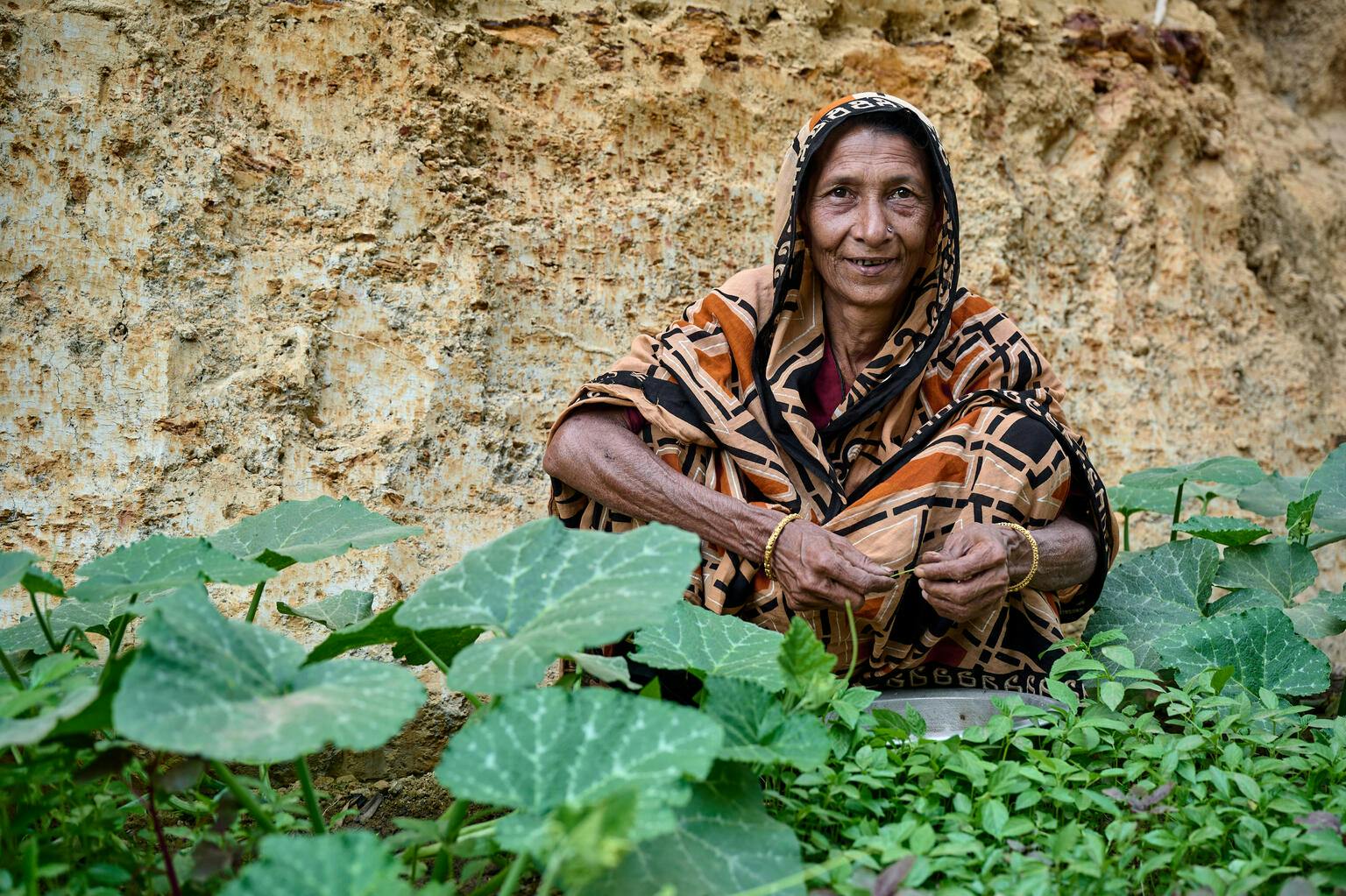

The Green Girls of Burundi
Not far from Bujumbura, Burundi's largest city, the Sobel camp is crowded with more than 6,000 people who were forced out of their homes by a series of catastrophic floods in recent years due to climate change. Previously state-owned farmland, the site is now hosting the largest displaced community in Burundi.
Firewood is the main source of energy here and the job of collecting it falls mainly on girls and young mothers. As wood becomes harder to find, they must travel longer distances, exposing them to the threat of violence and sexual abuse, and cutting into time for school or learning job skills. Deforestation also creates run-off and environmental impact, making living conditions much more complicated.
In response to these problems, UNICEF partnered with NGO SAD (Social Action for Development), to launch the Green Girls 2.0 initiative. The “Green Girls” is a community-led initiative which trains teenage girls and young women to source and manufacture a cheaper, more environmentally friendly type of charcoal made of plant materials.
The program tackles the effects of climate change and offers financial independence to young girls and mothers who were displaced by floods in Burundi.
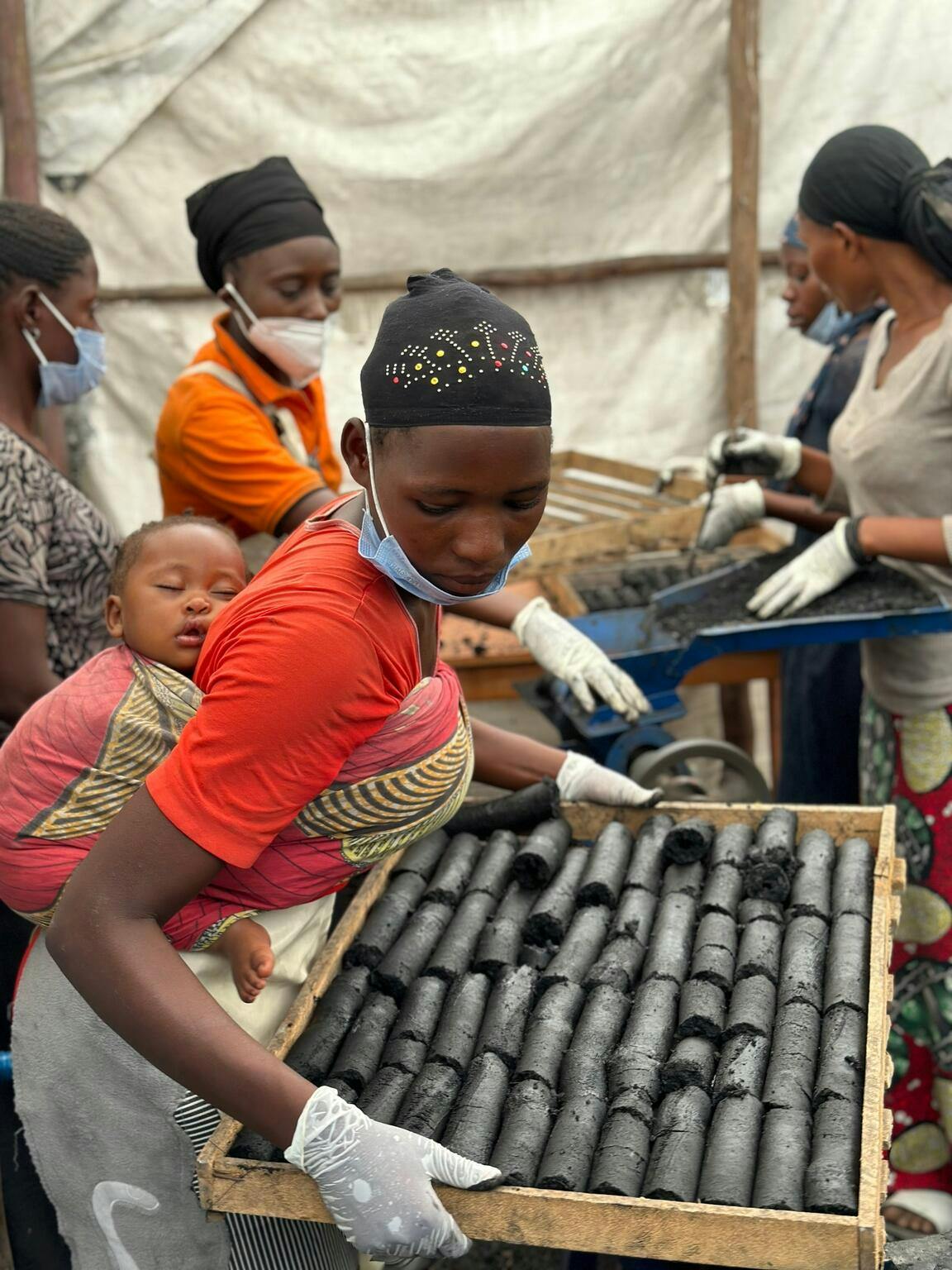

We hope these stories inspire and instil some positivity about what is possible, and most importantly encourage you to take action in your own way, within your community and beyond.
